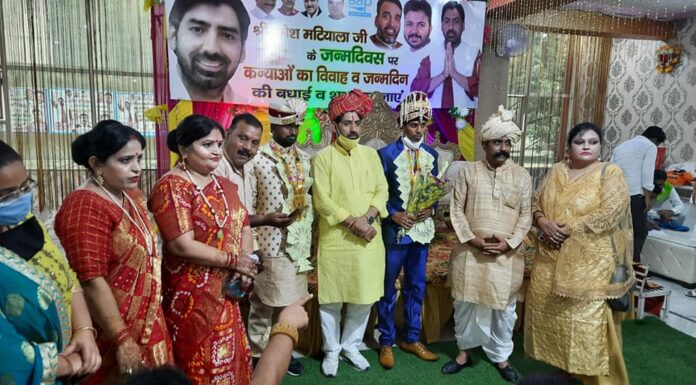The world is beset by more problems than Governments can solve. Poverty, malnutrition, violence, disease – and these only scratch the surface. It should come as no surprise then, that NGO’s (Non-Government Organisations) have such a heavy presence the world over. From the richest countries to the poorest, NGO’s often step in to fill in the cracks where official machinery does not reach, and in many places, to question the functioning of the government itself. Recognising the importance of the NGO to social and public welfare, almost all countries provide some form of tax incentives to them.
India has a large number of NGO’s, both home-grown and foreign, who operate on its territory, given that we have more than our fair share of social problems and a government of spectacular inefficiency. By and large, these NGO’s do stellar work, drawing attention and resources to places and people who would otherwise be left forgotten by the wayside on India’s march of development.

However, there is also a darker side to the world of NGOs: one of questionable financial practices and tax evasion.
NGOs of a Charitable nature can avail exemption from Income Tax by registering themselves with the Income-Tax Commissioner of their circle u/s 12A of the Income Tax Act 1961 (‘the Act’).
The exemption takes the following forms:
1. Income derived from the property held under trust for religious or charitable purposes is exempt to the extent it is utilised to carry out such religious / charitable activities. If the income is not applied towards such purposes in the same year it is earned, the same is treated as income chargeable to tax. However, upto 15% of the income can be spent in the 3 years following the year it is earned without losing the benefit of tax exemption.
2. Income in the form of donations received by the NGO to the extent that it is applied to the corpus fund (similar to the capital of a company).
3. Persons making donations to NGO’s (apart from those of a religious nature) can claim 50% (or 100% in some cases) of the same as a deduction from their Taxable income under section 80G if the Trust is duly certified by the Income Tax authorities.
As such, these exemptions are in line with international norms regarding the operation of Charitable organisations. However, there are certain ways in which these are abused. Some of the more blatant and common routes are:
1. Businessmen and politicians setting up Trusts to launder their own un-taxed funds. By setting up a Trust and passing their own funds to it (usually after passing it through the accounts of others and in their names), builders, politicians and other unscrupulous individuals have been known to legitimise their black money.
2. Subsequently, these funds are diverted for the benefit of the Trustees or whoever is the real person behind the trust. With the sheer number of NGOs in India, it is difficult to monitor effectively whether they are actually applying their income to the purposes for which they have been set up, as mentioned in the first point above. Further, salaries to employees and other running expenses can also be easily inflated and diverted. Every once in a while we hear about NGOs where the supposed beneficiaries (children, elderly or animals) are ill-treated while the premises of the NGO is being used as a personal residence by the staff or Trustees and trust funds are used to purchase expensive cars and computers.
3. But the most egregious misuse of the exemptions available is in the way certain NGOs issues receipts to donors purely to allow them to evade taxes. These unscrupulous NGOs issue receipts for much higher amounts than actually received to one person, allowing him or her to claim a large deduction u/s 80G, and then make up the difference by taking the money from their actual sponsor, who is only to happy to convert his black money into white by passing it into the Trust’s account under another name.
4. Operating a commercial enterprise and disguising it as an NGO. Many schools and hospitals are run along strictly commercial lines, charging high fees and making a tidy profit. However they are being constituted as Trusts so as to avoid taxation. Think about every time a school takes a ‘donation’ over and above the fees. This is a donation to a Trust’s corpus fund, but is tax-exempt. Similar examples would abound. Similarly, many religious places of worship make a lot of money from selling religious literature, idols, incense-sticks, food (Prasad) and so on, without paying a paisa of tax on the profit by taking advantage of the loopholes in tax law surrounding NGOs.
5. Expenditure on marketing. While not a direct form of tax evasion, in a way these expenses are also claimed as funds applied towards the objective of the trust, when in fact these do nothing but create visibility for certain corporate sponsors of the trust.
There are only a few of the ways in which NGO’s are being misused – there are issues related to
a) Corporate control,
b) Politicisation of NGOs
c) Use of NGO’s to promote agenda favouring foreign countries
d) NGOs operating as a front for anti-national activities
that also merit further investigation. However, the financial mishaps are the most obvious and since 2012, the Income-Tax bureaucracy has also taken note of the same, with a series of notices being issued to NGOs seeking clarifications and imposing penalties.
We must remember however that it is a case of a few bad organisations giving the world of NGO’s a bad name. Our readers would be well-advised to adequately investigate the background and activities of any NGO before choosing to donate to it or be associated with it in any form.






























